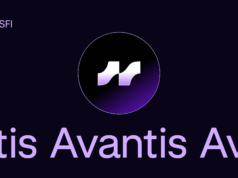Make Money Online

Studies have shown that people dislike attempts to make AI convincingly human. But emphasizing the essential role of humans in AI tools can help reduce resistance to adoption.
January 07, 2025

bashta/Getty Images
Post
Post
Share
Annotate
Save
Making your AI tools look human or dehumanizing them altogether are not the best ways to win over your users. Instead, show them the human effort and expertise that go into their development and design. The path forward is highlighting the humans in AI rather than humanizing AI. The good news: the reality for today’s AI systems is that they are fundamentally products of human work. From architectural decisions about model design to the curation of training data; reinforcement learning feedback to fine-tuning response behaviors; and prompt engineering to application development — humans shape these systems at every level. When users interact with AI, they are engaging with tools molded by countless human decisions and decisions. Anthropomorphizing practices, however, misrepresent reality as they entail portraying AI as human. The authors’ research shows that emphasizing this simple fact — the essential role of humans in AI tools — can boost perceptions of AI’s usefulness and reduce resistance to adoption.
As AI is infiltrating every aspect of how we live and work, it increasingly looks or sounds like us. From virtual assistants that can hold conversations with natural intonation to digital avatars that replicate human facial expressions, AI is becoming more human-like in its appearance and behavior. Consider OpenAI’s recent launch of the Advanced Voice Mode in ChatGPT. It used real actors’ voices with lifelike tones, natural conversations, and emotional responses, aiming to make AI sound “warm, engaging, confidence-inspiring, [and] charismatic.” Likewise, Character.ai — the second most popular gen AI application — allows users to engage with fictional or historical characters like Librarian Linda, Elon Musk, or even Napoleon Bonaparte.
New!
![]()
HBR Learning

Customer Focus Course
Accelerate your career with Harvard ManageMentor®. HBR Learning’s online leadership training helps you hone your skills with courses like Customer Focus. Earn badges to share on LinkedIn and your resume. Access more than 40 courses trusted by Fortune 500 companies.
Learn how to keep your customers—and their most important needs—front and center.
Start Course
-
Oguz A. Acar is a Chair in Marketing at King’s Business School, King’s College London.
-
AK
Anne-Kathrin Klesse is an associate professor of marketing at the Rotterdam School of Management, Erasmus University, and the academic director of the Psychology of AI lab at the Erasmus Center for Data Analytics (ECDA). Her research centers on understanding the impact of technology on human judgment and decision making, with a particular focus on elucidating human lay beliefs surrounding AI as well as gen AI usage behavior.
-
MT
Mirjam A. Tuk is an associate professor of marketing at the Rotterdam School of Management, Erasmus University. Her current research centers around encouraging consumers to make better decisions, combining insights from fundamental psychological theories with insights in the impact of technological advancements.
Post
Post
Share
Annotate
Save
New!
![]()
HBR Learning
Customer Focus Course
Accelerate your career with Harvard ManageMentor®. HBR Learning’s online leadership training helps you hone your skills with courses like Customer Focus. Earn badges to share on LinkedIn and your resume. Access more than 40 courses trusted by Fortune 500 companies.
Learn how to keep your customers—and their most important needs—front and center.










